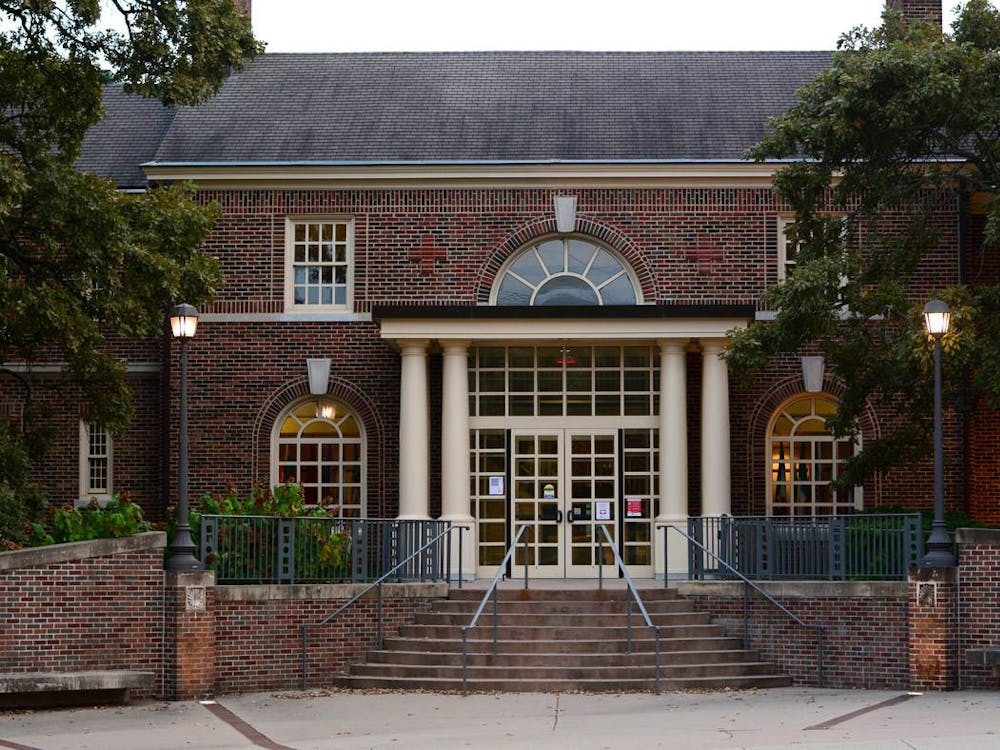By Emily Tate, Managing Editor
Miami University announced earlier this week that it's looking for a president committed to diversity, transparency and quality education.
These qualifications, and several others, are strikingly similar to the core values Miami's chapter of the American Association of University Professors (AAUP) laid out in a petition last month.
The petition, signed by 143 faculty members and presented to the Board of Trustees, requested at least two presidential finalists visit campus in the spring and outlined seven criteria it hopes the next president will meet.
Although the trustees denied the request for multiple finalists at the Sept. 25 board meeting, the 18-page position profile does reflect virtually all of the criteria presented by the AAUP.
Deborah Lyons, AAUP secretary, attended several meetings with the representatives of Isaacson, Miller over the last few months, where she pushed for diversity and shared governance, among other things.
For example, Lyons told the representatives she would love to see a woman of color fill the position.
Members of the AAUP spent most of those meetings urging Isaacson, Miller to consider an open, public presidential search, but Lyons said the firm was unwavering on that matter.
"We fought the good fight [on the closed search]," she said. "I think we made our point, but at a certain point we had to move on to other issues."
Now, the AAUP is focused on the end result: hiring a qualified, competent president.
"We're pretty happy with the description [of the position profile] because it does seem they've taken our concerns to heart," Lyons said. "The qualities listed are entirely consistent with what the AAUP is hoping for in a president."
The document, released Tuesday, will assist the board, the Presidential Search Committee and executive search firm Isaacson, Miller in identifying Miami University's next president.
Enjoy what you're reading?
Signup for our newsletter
In addition to indicating the skills and qualities desired in a presidential candidate, this document describes the university, its history and its values, as well as opportunities and challenges the next president will face, according to Ted Pickerill, secretary to the Board of Trustees.
The position profile was drafted by Isaacson, Miller and reviewed by the trustees and search committee. However, the content of the profile itself incorporates feedback from faculty, staff, students and alumni who attended the meetings with Isaacson, Miller and submitted suggestions online, chair of the board David Budig said at the Sept. 25 meeting.
"All provided extremely important input in creating the final document," Pickerill said in an email.
This scoping document is key to the presidential search, Pickerill said, as it will not only inform prospective candidates about Miami, but it will serve as a reference guide for those involved in the search process.
"The search committee will draw upon this document as it examines and evaluates … many extraordinary individuals … helping assure us all that the eventual selection will be a scholar and leader who embraces Miami's values and is ready to lead the university," Pickerill said.
Both the document and the AAUP petition describe a president who will be most successful if he or she is focused on a specific set of goals: commitment to high quality education, increased transparency and shared governance, a growing core of tenure and tenure-track faculty, a diverse body of students and faculty, affordability, intellectual and ethical leadership, research and innovation.
Although these points are a priority in the search, there is no guarantee the finalist announced this spring will adhere to any or all mentioned in the position profile.
"[The university] has laid out a fine set of expectations for the new president," said Cathy Wagner, English professor and vice president of the AAUP. "We hope the Board of Trustees will be guided by them."
In September, former university president Jim Garland (1996-2006) weighed in on the selection of the next president.
"I personally would hope that Miami's next president is somebody who does come from academia," Garland said. "I really think that's important."




